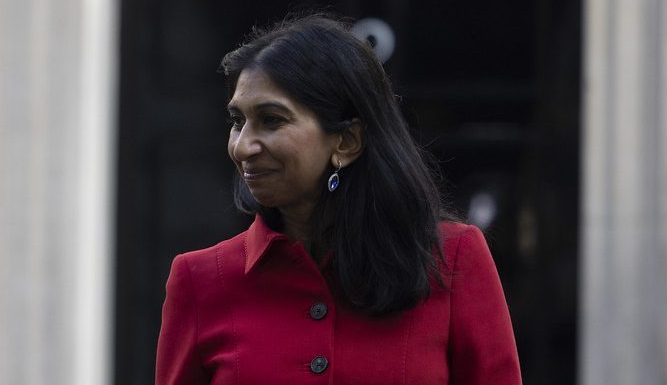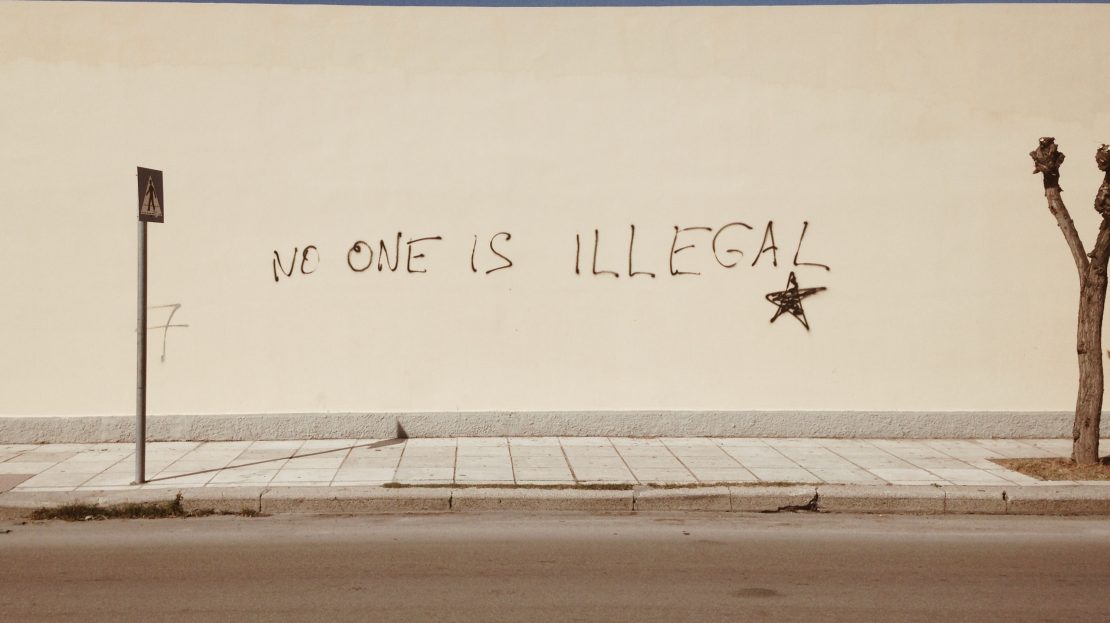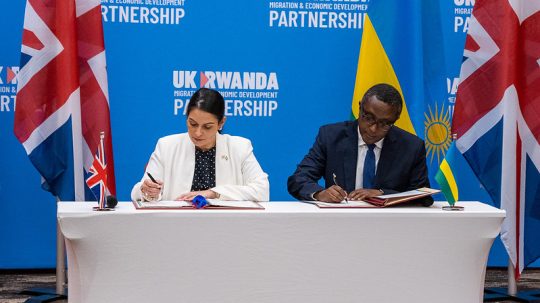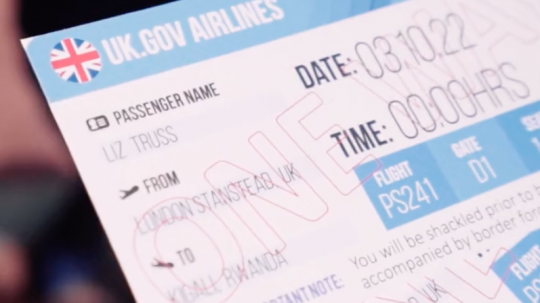The High Court has ruled that the government’s Rwanda policy, labelled “awful” by former child refugee Lord Dubs, is lawful. This follows an intervention from the European Court of Human Rights, which, in a last-minute ruling, stopped any flights under the scheme until the UK’s domestic courts could determine if it was legal. While the policy was ruled legal, eight individual cases will be determined separately and another hearing could be launched in 2023 if an appeal is lodged.
The summary of the decisions of the Divisional Court stated: “On the evidence before this court, the government has made arrangements with the government of Rwanda which are intended to ensure that the asylum claims of people relocated to Rwanda are properly determined in Rwanda.”
The former home secretary Priti Patel signed the £120m Rwanda migration partnership, which seeks to send asylum seekers and migrants to the east African country for processing.
The summary explained that the relocation of asylum seekers to Rwanda is consistent with the Refugee Convention and with the statutory and other legal obligations on the government including the obligations imposed by the Human Rights Act 1998.
It is reported that ministers are keen to start sending people crossing the English Channel to Rwanda “as soon as possible” following the ruling. However, a spokesman for prime minister Rishi Sunak refused to comment on whether the flights would take place before the next general election, which is expected to be held in 2024.
The prime minister’s claims are incorrect
Rishi Sunak said he welcomed the High Court ruling, calling it a “common sense position” that was supported by “the vast majority of the British public”.
However, recently polling from YouGov has found that the majority – 72% – of the public do not agree with the policy. And 73% of people said they were unhappy that the system was being run in ‘an incompetent’ or ‘chaotic’ manner.
Robert Jenrick, a Home Office minister, called the policy ‘world leading’ in the House of Commons yesterday. Despite it being found to be legal by the courts, the UN has condemned the policy.
The United Nations High Commissioner for Refugees had previously told the court that Rwanda “lacks irreducible minimum components of an accessible, reliable, fair and efficient asylum system” and that the policy would lead to a serious risk of breaches of the Refugee Convention.
There is no evidence to suggest it will stop small boats, but it will extend people’s suffering
Speaking about the policy, Yvette Cooper, the shadow home secretary, said: “Ministers have already written a £140m cheque to Rwanda without the policy even starting, with millions more promised even though Home Office officials say there’s no evidence it’ll provide a deterrent and it risks making trafficking worse.”
Caroline Lucas, Green MP for Brighton Pavilion, echoed the YouGov findings in a statement made to parliament following the ruling. Lucas said that the government’s claim of it being a “deterrent approach” would not stop the suffering of people seeking asylum and called the government “vile”.
People seeking refuge treated like human cargo
Enver Solomon, Chief Executive of the Refugee Council, said: “Treating people who are in search of safety like human cargo and shipping them off to another country is a cruel policy that will cause great human suffering. The scheme is wrong in principle and unworkable in practice.”
He continued: “The Home Office’s own evidence shows that deterrence measures such as this simply don’t work – they just force people to take ever more dangerous journeys. It also poses serious safeguarding risks, particularly for children and vulnerable individuals.”
The policy has been one of the most widely criticised among those brought into parliament this year, particularly by MPs and Lords from opposing parties.
Lord Dubs left his home of Czechoslovakia on a Kindertransport train before World War II and arrived in the UK in 1939. He has criticised the policy for being used as a political tool for the government to offshore people.
He told the Guardian: “I think it’s a way of getting rid of people the government doesn’t want, dumping them in a distant African country, and they’ll have no chance of getting out of there again,” he said.
His statement is partly supported by criticism that the Home Office has not established safe legal routes back to the UK for people being sent to Rwanda.
The policy has already made survivors of war homeless
Survivors of the Rwanda genocide were made homeless within two days of the UK signing the controversial Rwanda migration partnership. Hostel Hope, in the Rwandan capital of Kigali, has housed survivors of the 1994 genocide for nearly 30 years, but they were made to leave when new arrangements were made to accommodate asylum seekers from the UK.
The claimants, Detention Action, Care 4 Calais and PCS union, can file for an appeal to the ruling which could see another legal battle take place in 2023.
Eight cases will now be considered by the Home Office
However, the Home Office must consider properly the circumstances of each individual claimant.
The High Court found that home secretary Suella Braverman has not properly considered the circumstances of the eight individual claimants whose cases were heard. In turn, the judgment was made that those cases will be ‘set aside’ for her to consider.
The home secretary must decide if there is anything about each person’s particular circumstances that means that their asylum claim should be determined in the UK or whether there are other reasons they should not be relocated to Rwanda.
The home secretary said: “I am committed to making this partnership work – my focus remains on moving ahead with the policy as soon as possible and we stand ready to defend against any further legal challenge.”
It seems that Braverman’s “dream” of sending people to Rwanda, for the time being, is not a reality.
Editor’s Note: for the sake of accuracy, following feedback, the title and first sentence of this piece were amended after initial publication.





